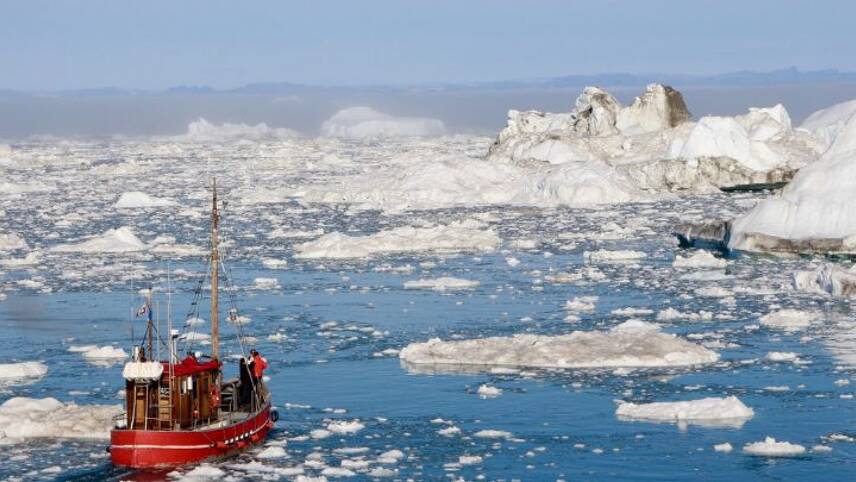Register for free and continue reading
Join our growing army of changemakers and get unlimited access to our premium content

The report represents the work of 104 scientists and references nearly 7
Launched at the UN’s Climate Summit in New York, the document charts how ocean warming and the melting of ice sheets and glaciers will cause sea levels to rise through to 2050.
The key conclusion is that no parts of the world will be spared from the adverse impacts of rapid sea-level rise, which is likely to impact one billion people by 2050. Impacts range from regular flooding of homes, workplaces and schools, to the complete submersion of the world’s most at-risk island and coastal communities, displacing hundreds of millions of people. According to the IPCC, this sea-level rise will be irreversible.
Other projected impacts of climate change on the oceans and cryosphere detailed in the report include more frequent and more wide-reaching marine heatwaves, known for killing ocean wildlife and corals; the extinction of “ice-dependent” species such as polar bears; the acidification of the world’s oceans and a rise in “superstorms” – both over land and at sea.
The report additionally sets out how damage to oceans and the cryosphere will lower humanity’s ability to mitigate and adapt to climate impacts. It notes that, since 1970, the oceans have absorbed more than 90% of the extra heat generated by man-made activity and about a quarter of man-made CO2 emissions.
Coral reefs, the report states, are another key natural solution to climate change being eroded by its impacts. More than 500 million people are reliant on coral reefs for coastal protection and their livelihoods, but 99% of reefs will decline with a 2C increase in warming.
As was the case with its landmark report on global warming last autumn, the IPCC is using its new report to call on nations to align their climate policies with the Paris Agreement’s more ambitious 1.5C trajectory.
The difference between 1.5C and 2C, the body’s research has shown, will significantly worsen the risks of drought, floods, extreme heat and poverty for hundreds of millions of people. At present, despite leadership examples from nations, states and businesses, the world is on track for a temperature increase of 3C by 2100.
Green economy reaction
WWF’s director of Arctic programmes Dr Peter Windsor said: “Unprecedented melting of the Greenland and Antarctic ice sheets and glaciers is now the biggest contributor to global sea-level rise that will impact hundreds of millions of people.
“We can still save parts of our cryosphere, but we must act now. Existing commitments by governments to fight climate change are inadequate. The four million people living in the Arctic are dealing with disappearing food sources and struggling to keep their homes from slipping into the ocean. Polar regions, their people and species, depend on us to take action now.”
WWF Scotland’s director Lang Banks said: “This extremely worrying report underlines the need for the Scottish Government to build on its welcome focus on climate change at the heart of the Programme for Government by rapidly accelerating policy action and funding to cut carbon and restore nature.
“At a time when all eyes are starting to turn to Scotland ahead of the UN Climate talks in Glasgow, it’s vital that Scottish Ministers step up action to address the climate emergency in the next Budget and Climate Plan.”
Christian Aid’s Global Climate Lead Dr Kat Kramer said: “This report must act as a clarion call to end our continuing pursuit of fossil fuels which are causing huge harm to the world’s oceans.
“Not only are fossil fuels a source of ubiquitous plastic waste, they are the main source of the CO2 that is killing coral reefs through global heating and ocean acidification.”
Former Environment Minister Richard Benyon MP said: “This report shows very clearly that the fundamental and non-negotiable requirement for a healthy ocean is sharp reductions in greenhouse gas emissions.
“We can and should protect fish and their habitat from over-fishing and other forms of exploitation, but the IPCC analysis shows that if we do nothing about carbon emissions such measures will amount to little more than sticking-plaster.
“With the UK hosting next year’s UN climate summit, everyone in Government at any level must focus their attention like a laser beam on the single goal of cutting emissions; only that can ensure long-term health for the amazing ocean life about which we all care so deeply.”
Energy and Climate Intelligence Unit (ECIU) director Richard Black said: “Shrinking ice-sheets, a suffocating ocean, glaciers that act as reservoirs for billions of people melting away; there is precious little of cheer in this latest IPCC report.
“In particular, declining levels of oxygen in the ocean, combined with warming and acidification, present marine life with a triple whammy of threats whose collective impact is incalculable, while the release of greenhouse gases from a melting Arctic risks taking us beyond the point where climate change could be easily constrained.
“Nevertheless, it’s worth recalling that the IPCC’s report last year concluded that governments can shrink emissions quickly enough to keep global warming to 1.5ºC if they choose. And as all governments commissioned and have now accepted this new report, none can claim to be unaware of both the dangers of untrammeled climate change nor the feasibility of preventing it.”
Sarah George


Please login or Register to leave a comment.